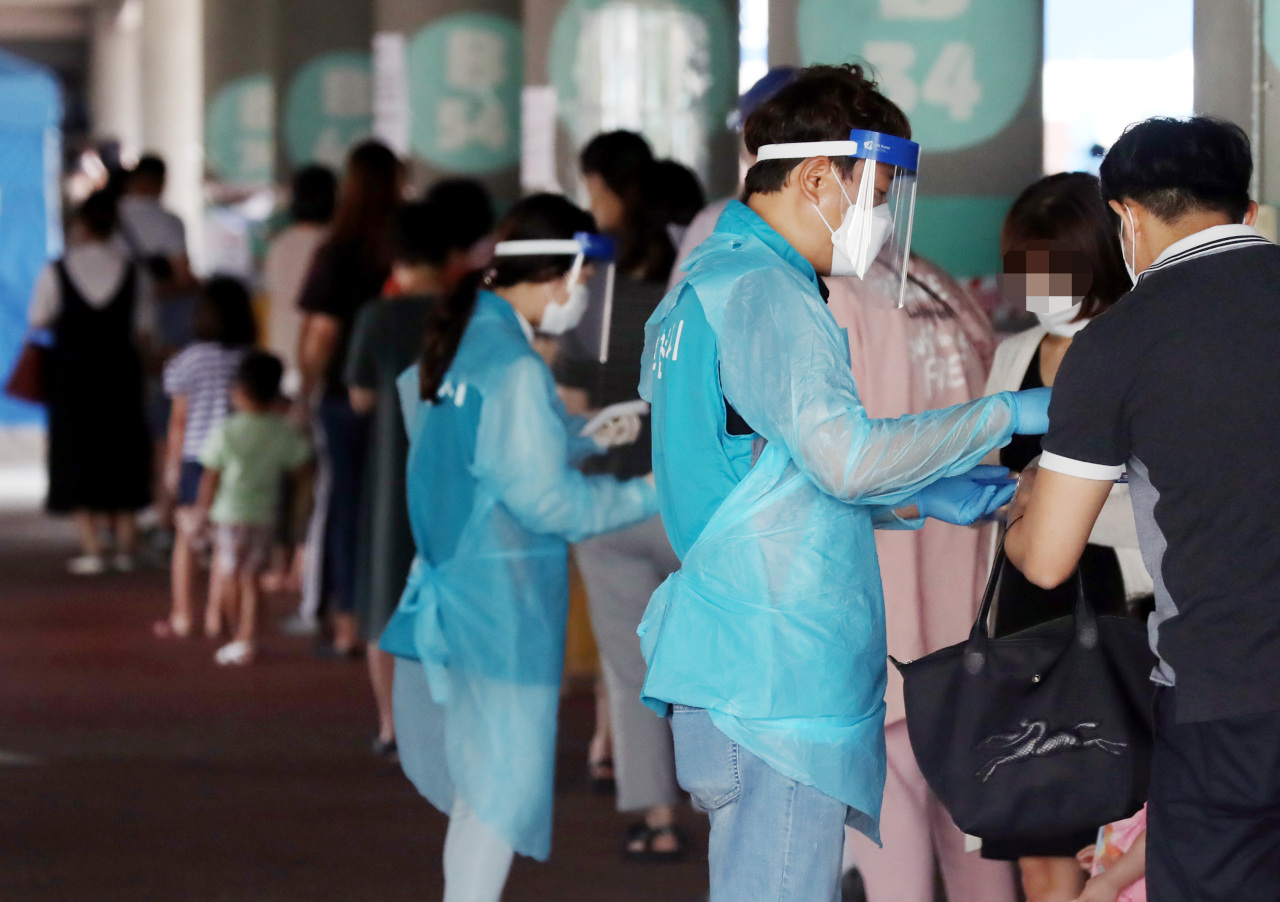New virus cases bounce back, greater Seoul under extended social distancing
By YonhapPublished : June 12, 2020 - 10:29

South Korea's new virus cases rebounded to over 50 on Friday, with most of them reported in the Seoul metropolitan area, forcing health authorities to extend toughened social distancing in the densely populated capital area.
The country added 56 new cases, including 43 local infections, raising the total caseload to 12,003, according to the Korea Centers for Disease Control and Prevention (KCDC). It marked an increase from 45 posted a day earlier.
Of the locally transmitted cases, all but one were reported in Seoul and surrounding areas.
The accumulated number of patients in Gyeonggi Province that surrounds the capital city surpassed the 1,000 threshold.
South Korea eased its strict social distancing guidelines on May 6 on the back of the flattened virus curve, with phased reopenings of schools starting in mid-May.
The relaxed social distancing guidelines, however, have been in peril as a group of clubgoers from a nightlife district in Seoul were confirmed to be infected with COVID-19.
A string of cluster infections tied to religious gatherings, a distribution center and sports facilities has also popped up.
Late last month, the country implemented a two-week tougher social distancing scheme for the metropolitan area that is home to half the country's population of 50 million.
But asymptomatic "silent" virus spreaders along with secondary transmissions traced to cluster infections harried health authorities, who even say the country may roll back to strict social distancing again unless the virus curve flattens sharply.
Health authorities decided to extend the deadline previously set for Sunday, as a whopping 97 percent of locally transmitted cases have been reported in the metropolitan area this month. The measure will be in place until the number of new cases falls back to a single digit, they added.
Mandatory use of QR code-based entry logs will be applied at cram schools and PC cafes in the metropolitan region as well.
"If the number of new cases do not slide to a single-digit level, we will consider moving on to the next step to enforce a strict social distancing scheme," Health Minister Park Neung-hoo said during a briefing.
Park urged residents in greater Seoul to stay home as much as possible, saying that the number of travelers within the metropolitan area has not changed over the past two weeks despite the enhanced social distancing.
On Thursday, cases traced to a warehouse run by e-commerce leader Coupang in Bucheon, just west of Seoul, reached 146, up two from a day earlier. Those linked to small churches in the metropolitan area rose by two to reach 94.
Cases tied to a door-to-door business establishment rose to 116 as of Thursday, with patients aged 60 and above accounting for nearly 70 percent. The first virus patient from the company was reported on June 2.
COVID-19 cases linked to a table tennis gym in southwestern Seoul came in at 60 on the previous day.
Other smaller cluster infections were reported across the nation as well. Seven cases were reported from the Defense Security Support Command, located in Gwacheon, just south of Seoul.
The resurgence in virus cases came as the country completed phased school reopenings this week.
South Korea said there will be no changes to the reopening of schools.
"So far, there have been no infections reported from schools. Some students were infected in other places, but those did not lead to secondary infections," Park said.
The total death tally increased by one to 277, with the fatality rate reaching 2.31 percent. The rate for patients aged 80 and above stood at a whopping 26.15 percent.
South Korea's imported virus cases reached 1,325, up 13 from a day earlier.
The total number of people released from quarantine after full recoveries stood at 10,669, up 15 from the previous day.
The country has carried out 1,081,487 COVID-19 tests since Jan. 3. The figure translates to roughly 1 out of every 50 South Koreans receiving COVID-19 tests. (Yonhap)



![[Exclusive] Korean military set to ban iPhones over 'security' concerns](http://res.heraldm.com/phpwas/restmb_idxmake.php?idx=644&simg=/content/image/2024/04/23/20240423050599_0.jpg&u=20240423183955)

![[Graphic News] 77% of young Koreans still financially dependent](http://res.heraldm.com/phpwas/restmb_idxmake.php?idx=644&simg=/content/image/2024/04/22/20240422050762_0.gif&u=)



![[Pressure points] Leggings in public: Fashion statement or social faux pas?](http://res.heraldm.com/phpwas/restmb_idxmake.php?idx=644&simg=/content/image/2024/04/23/20240423050669_0.jpg&u=)










